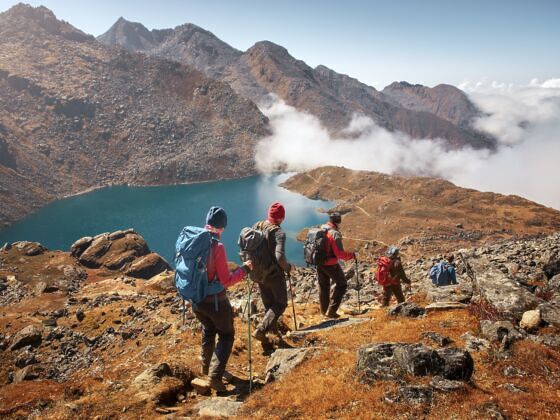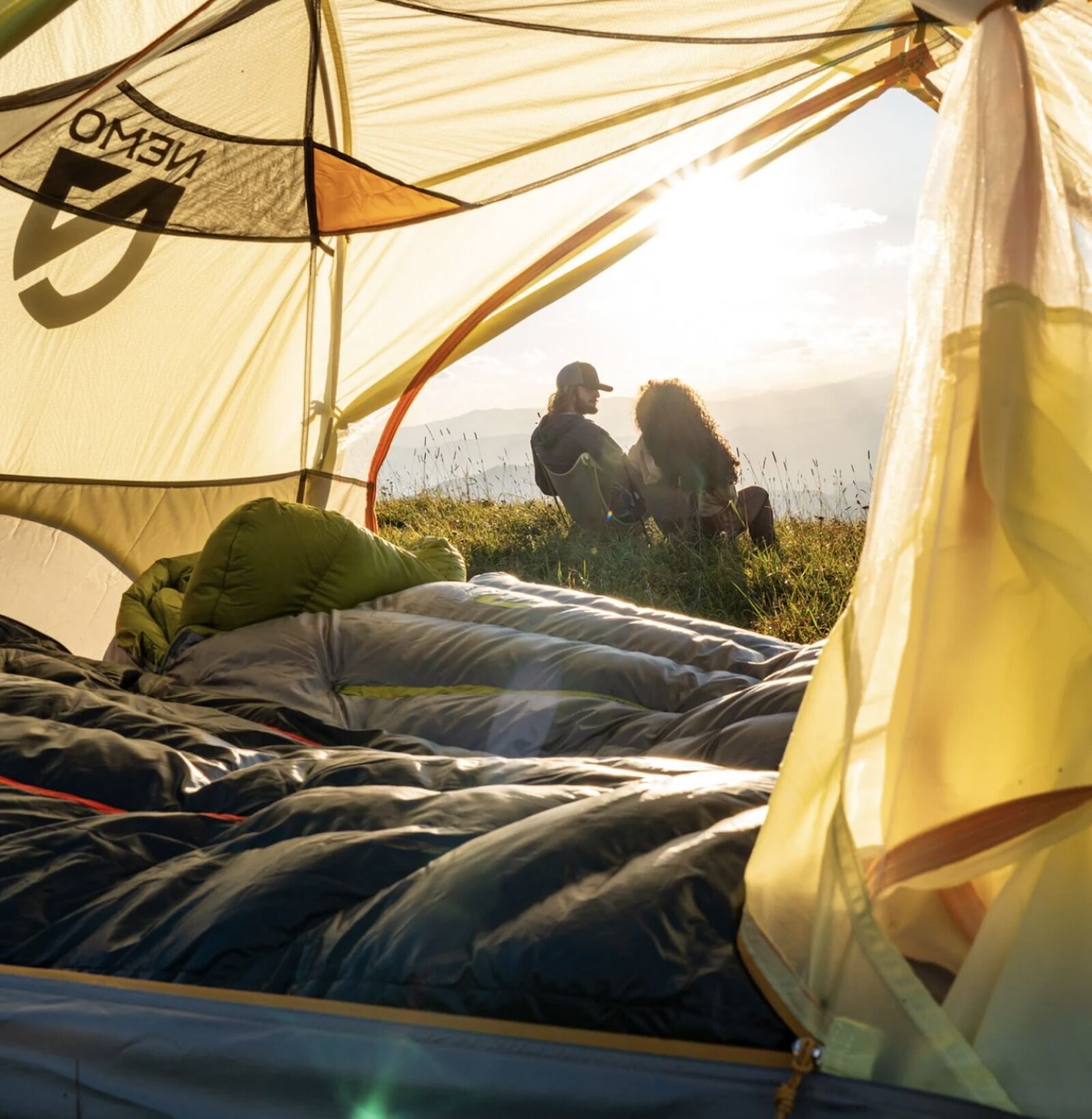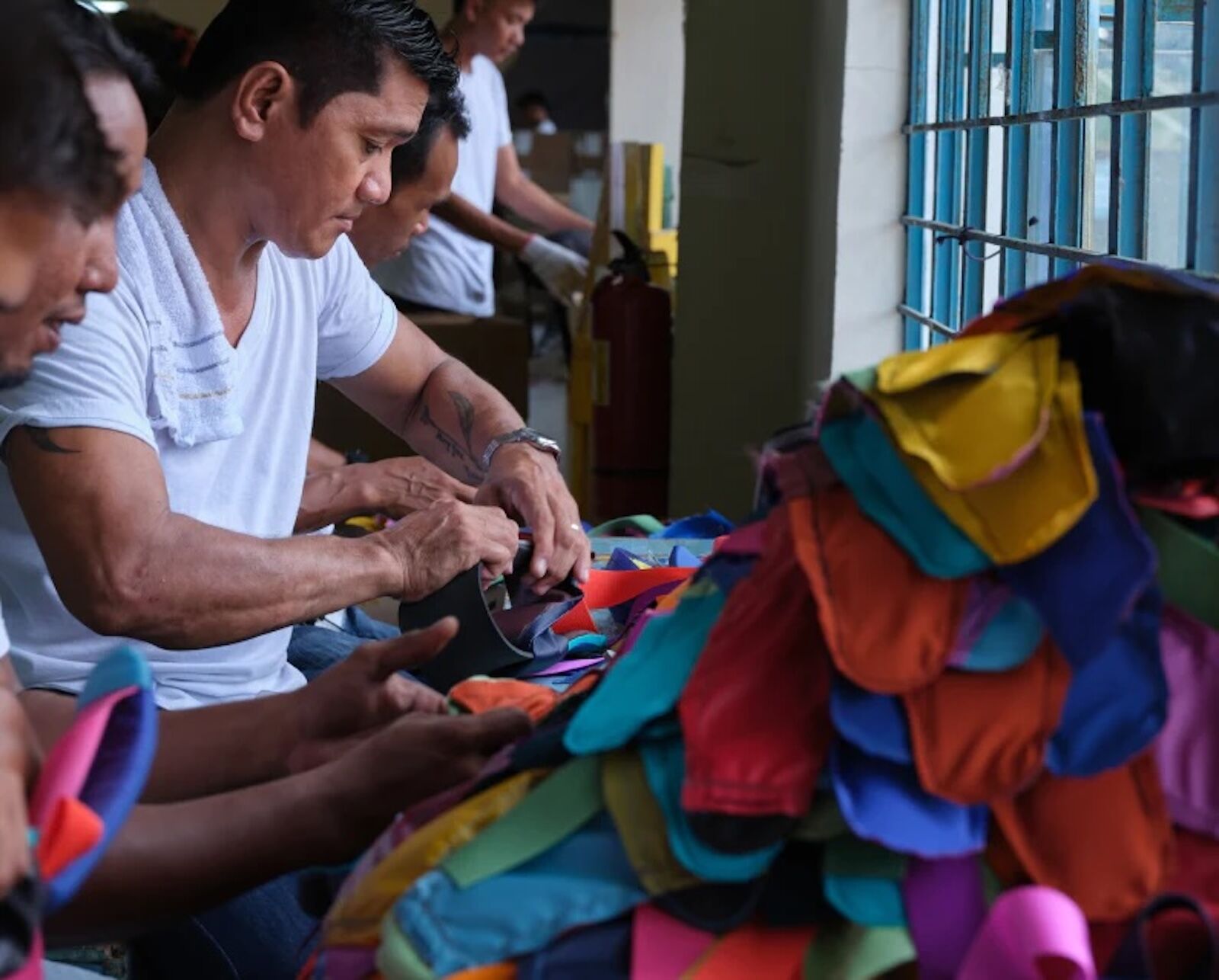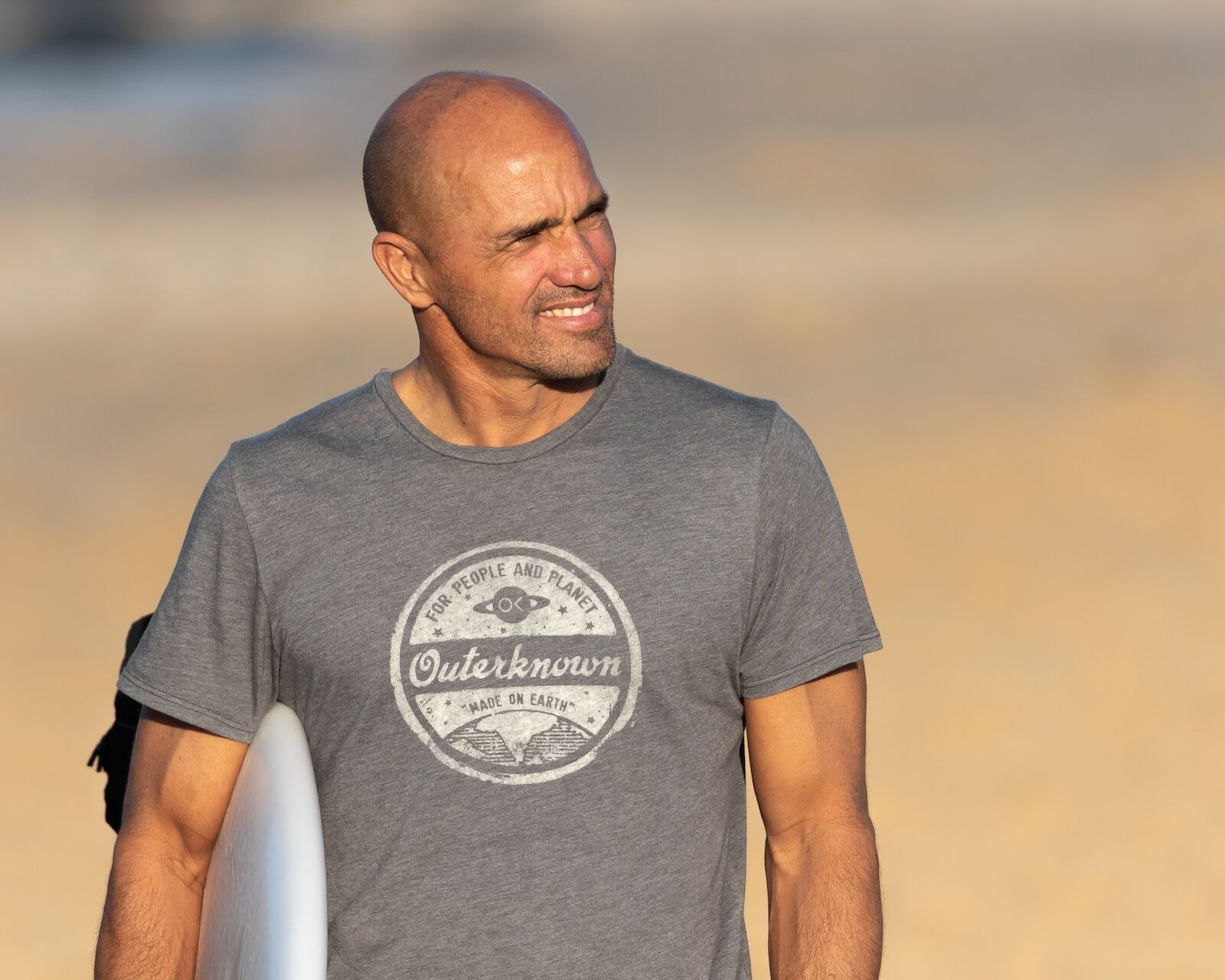For textile businesses, the road to circularity is hardly round. It jigs, jags, and juts in all directions, with supply chain and scalability issues a constant concern. There’s also the need to actually be profitable in order to make sustainable gear actually sustainable for the business long term. The outdoor industry is the unparalleled leader in sustainable textiles, with headline brands like Patagonia and The North Face producing rugged clothing built for the elements as the anti-fast-fashion. Most brands, however, don’t have the billion-dollar budgets of top-tier brands, but are still working toward making circular products with incremental steps along the way. Three brands, in particular, are leading the charge – NEMO Equipment, Cotopaxi, and Outerknown. Each is taking a very different path to low-impact clothing and gear, and each has built a model that other small-to-mid-size brands can follow.


Your Outdoor Gear Will Soon Be Circular. Meet the Brands Making It Happen
NEMO launches Endless Promise, a major push toward circularity

Photo courtesy NEMO
Perhaps no brand is closer to full circularity than NEMO. Its recently launched Endless Promise series includes recyclable packs and sleeping bags. At current, 13 percent of NEMO products are circular from souring to recycling at the end of its lifetime, and the company has a goal to bring that up to 100 percent in the coming years.
“It really started as an email memo from our CEO and founder, Cam Brensinger,” says. Theresa McKenney, NEMO’s Director of Sustainability and Government Affairs. “He asked us to think bigger about sustainability and to go past those incremental baby steps that are important and inherent in the process.”
This led the team to go back to the drawing and design what is pinnacle eco-friendly product could be. The brand had already had audits on its greenhouse gas emissions and footprint, and taken the steps it could to cut that back as far as possible. It had spent ample time and resources figuring out how to source recycled and responsible materials for its products, and had implemented them wherever possible. Creating a product that could permanently avoid ending up in a landfill seemed a logical next step.
The Endless Promise concept was born, with the decision to create sleeping bags and packs first due to the materials used lending themselves more readily to such a goal. Each Endless Promise product contains a unique QR code that the buyer can scan to learn about how and where to resell, repair, or recycle the piece of gear, based on where they are located.
“We decided to design for repair-ability, and for creating an infrastructure for resale and recyclability,” McKenney says. “That was the North Star of the project.”
Rather than launching a new product or testing the waters with a second-tier one, NEMO decided straight away in 2023 to redo its flagship best seller, the Forte sleeping bag, to make it recyclable. The company sends end-of-life bags to Allied Feather + Down to extract the down for repurposing, and then sends the rest of the material to Ambercyle in Los Angeles for recycling.
“This was not a small pilot, it was a systemic shift for us,” McKenney says.
In the newest edition, most of the bag is made of recycled polyester, designed to be as repairable as possible. Customers can ship the product back to NEMO for repair, or contact one of the third-party partners in the US and Europe including Allied Feather & Down and United Repair Center. For resale, NEMO partnered with Out & Back Outdoors, a used gear online store, where owners of NEMO products can list their gear for sale in exchange for cash or a NEMO gift card.
The recyclability is the crux of the product, however – that’s what makes it almost entirely circular. NEMO’s original recycling partner required a volume of products that was unattainable for the brand, so NEMO partnered with UNIFI, a North Carolina company that recycles polyester and other materials.
“The way it works is the product is put into a machine that shreds it, washes it, melts it, and extrudes it, turning the material into a product called “repreve,” a recycled polyester that can then be used again to make new gear or clothing items. NEMO offers a $20 incentive to recycle the product at the end of its life.
In addition to luring new customers, the Endless Promise collection has galvanized the company’s work force to unite under the mission. “It’s been great for attracting talent,” McKenny says. “I get nervous about the focus on greenwashing right now. I think it’s important to be actioning on projects, and this is a great example of one we have our North Star, and we want to make sure we have vetted and verified work to back it up. It’s been a fun project for the team.”
Cotopaxi reaches 100 percent deadstock and ethically-sourced fibers

Photo courtesy Cotopaxi
Another outdoor industry leader in the process towards circular textile goods is Cotopaxi, a brand with a simple mantra — “Gear for Good.” The certified B-Corp embraces the same ethos as NEMO, Cotopaxi is pursuing a slightly different route, built around what it perceives as an already existing abundance of fabric that can be used for durable clothing and gear now, and repaired and repurposed in the future – effectively minimizing the need to draw down natural resources to keep the industry moving forward.
This material is known as “deastock.” Deadstock refers to unused or excess fabric that remains after the production process. It’s essentially leftover material that didn’t make it into finished garments, and is a significant factor in Cotopaxi’s sustainability efforts. As of this summer, Cotopaxi is producing 100 percent of its product line with either deadstock or material that is recycled or certified responsibly sourced. That means no new plastic or synthetics, and increasingly, very little material added into circulation that wasn’t already produced in the first place.
“(The textile industry is) sitting on enough fabric by some statistics that we can make products for the next 150 years,” says Annie Agle, Cotopaxi’s Vice President of Impact and Sustainability.
This excess gives the industry the ability to drastically cut back on “tier 2” emissions, produced when fabric is woven, dyed, and treated. The company also has a page on its site listing clothing and products made from recycled materials, and a special, one-off Del Dia collection that is entirely sourced from deadstock and repurposed materials – in this collection, no two pieces are alike. The collection includes packs, duffel bags, small bags, and smaller items made entirely of stuff that would otherwise end up in landfills.
“By avoiding all this demand and the additional demand on the environment that’s required to produce this fabric, you are realizing significant emissions and water savings,” Agle says.
The five-year process of reaching 100 percent deadstock or well-sourced materials has launched Cotopaxi to the forefront of eco-friendly production in the textile industry, and further solidified the leadership of outdoor-oriented brands in the process.
“Now we’re working towards full circulatory over the next couple years,” Agle says, “and we also have a full upcycled collection coming out next year which I’m really thrilled about. We see upcycling as a much more attractive option for sustainability than fiber-to-fiber recycling, though that’s something we will look at as well.”
As a small-to-medium sized business, Cotopaxi’s ability to make the massive investments needed for fiber-to-fiber recycling is limited, Agle notes. This, however, isn’t inherently a negative. That’s because recycling doesn’t reclaim 100 percent of fibers, and the process in some instances makes the fibers themselves less durable. While the brand believes that recycling is part of circularity, Agle is hesitant to prescribe it as the sole solution.
“Durability and repairability are the most important features,” she says. “That’s really what we’re striving for, and I think the outdoor industry in general is well-positioned to meet that sustainability goal, because the products have to be able to satisfy a more technical user.”
One issue the industry faces, Agle points out, is that it’s still wedded to synthetics. While natural fibers perform well as mid-layers and insulation, outer layers need to be water-repellant or water-proof and meet more technical specifications that natural fibers can’t solve.
“The challenge is what the next stage of non-synthetic performance materials looks like,” she says. “Could we get mushroom fiber, or other alternatives there. Those products aren’t ready to come to market yet, and that is definitely a challenge for our circularity. I think those technologies are coming out more and more every year.”
Another aspect Cotopaxi works towards is making sure its customers are aware that there are reclamation options to repurpose or repair their clothing and gear once it’s damaged or at the end of its useful life. Customers can trade in their gear or shop used gear right on the company’s website. Agle says the brand works hard to educate consumers on this fact, and, like NEMO, actively wants to facilitate the process and make it as easy as possible for their customers to send gear on to its next incarnation.
Outerknown pioneers industry-leading upcycling through Project Vermont

Photo: LouisLotterPhotography/Shutterstock
When discussing Outerknown, legendary pro surfer Kelly Slater is quick to note that he’s been paid to wear clothing for most of his life. Slater, along with co-founder John Moore, decided to do something about the fact that he never knew the backstory behind the clothes he promoted, launching Outerknown in 2015 to be an ethically-sourced clothing brand that the pair and their customers could feel proud of representing. Beyond organic cotton and other responsibly-sourced materials, Outerknown has become an industry leader in repurposing and upcycling, in part due to its innovative Project Vermont.
To give organic wool and cotton clothes a circular ending, we recommend sending them to our Project Vermont workshop, where we’ll upcycle them into new creations,” Moore says.
The brand also operates a resale program called Outerworn, where, like brands like NEMO, it helps customers find a new home for used clothing.
“[E]ven items that show some wear, such as a patched hole, can still be great candidates for resale,” Moore says. “Our Project Vermont workshop is a great option – send them to us and we’ll upcycle them into new ideas.”
Because its clothes are largely made with organic cotton and other single-source materials that are more easily repaired or repurposed than full synthetics, Outerknown is able to partner with third-party purveyors that focus solely on repurposing used clothes to keep them in cycle.
“Alternatively, you can also recycle the fibers through companies like Debrand, Homeboy Threads, and Sway. These industry partners are dedicated to keeping valuable fibers in circulation, ensuring that your clothing gets a second life.”
Moore’s words vibe with Agle and McKenney here in highlighting the importance of collaboration and communication.
“The important piece I always emphasize is how important collaboration is,” Agle says. “If you move as a lone agent in this space, if you have sharp elbows around your sustainability practices, you’re not going to move the needle.”
This, she says, requires brands to support their suppliers and partners in reaching more stringent sustainability standards, and communicating both support and expectations consistently throughout the supply chain.
McKenney, for NEMO’s part, agrees, noting that reaching circularity is an on-going process, and being open about where a brand is at is the best way forward. Both encourage consumers to ask before they buy in order to push brands further towards circularity.
“Even if they’re not all the way there, that doesn’t make it greenwashing,” McKenney says. “There’s nothing wrong with asking for information.”